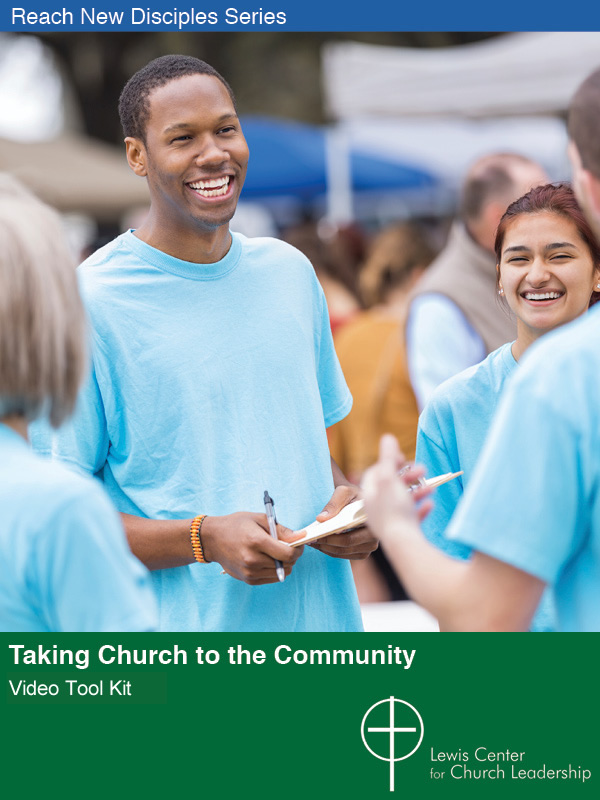Andrew Ponder Williams says that simple acts of kindness can counter the dominant cultural narrative of meanness and be a powerful way for the church to connect with others. Kindness, he suggests, is the new evangelism.
So much of the narrative in our culture today can be summarized as just plain mean. From the way customers behave at the corner restaurant to the dialogue of lawmakers on Capitol Hill, there is no shortage of people being nasty.
As Christians at our best, we spend our energy decrying the cruelty of all those around us. At our worst, we fall victim to the same cruelty within the walls of our congregations. What if, instead, our response to society’s fixation on bad behavior was to model a different way?
We have traditionally thought of evangelism as an invitation to those outside the church to experience God’s love by joining us inside the church. Instead, what if simple acts of kindness to those beyond the walls of our churches became our new approach to evangelism?
The power of basic kindness
I did not realize the power of basic kindness until the students I shepherded in a campus ministry at the University of California, Irvine, came up with a distinct outreach plan. Instead of having a table lined up next to all the other church groups at the student involvement fair, we decided to offer random acts of kindness to students roaming the campus between classes.
Thanks to my spouse’s occupation at a grocery store, I was able to buy a whole bunch of chocolate chip cookies for a fair price. We wrapped each cookie in a napkin and included a small card inviting students to our weekly dinner. If you ever want to feel like a celebrity, stand in the middle of a busy college campus corridor with a whole bunch of cookies!
What we learned about kindness
We experienced three types of reactions from the students. One was instant glee that there were cookies and that they were free. The second was to politely decline the cookie initially but return within approximately 30 seconds to inquire if they really were free. The third was to completely refuse the cookie out of disbelief that we were giving away cookies without a gimmick.
These responses taught us something about kindness. Kindness is simple but challenging. Kindness is global. (So are cookies!) Kindness is Christian. Kindness is contagious. But some people will never believe that something desirable is free.
The varied reactions to our random acts of kindness created many opportunities for our student leaders to begin conversations with those who received cookies. Our kindness to everyone in our midst frequently made people ask us who we were before we could volunteer the information. We discovered that kindness not only attracted positive attention to our ministry, it also helped us stand out from the crowd within the Christian community on our campus.
How can kindness be a form of evangelism in your context?
The most effective uses of kindness are highly visible and interpersonal. Here are some starter ideas for a variety of contexts:
1. Facility-use evangelism
Your church likely hosts outside community gatherings, from Scouts to recovery support groups. Pick a couple weeks a year to leave snacks and other fun things in a visible spot in the meeting rooms of these community groups. Make sure to include bright and simple literature about your church that highlights your desire to welcome them into a deeper connection.
2. Sermon series
You can’t go wrong with a sermon series on kindness. This is a great way to get your congregation thinking about how they can live out their faith by simply being kind.
3. Define kindness as central to your mission and values
You can work with your congregational leadership to define kindness as a part of your congregation’s mission and core values. This will establish a distinct culture for your ministry.
4. Offer kindness to those in crisis
Watch your local news to see where kindness is urgently needed in your community. Perhaps the staff of a bank that was robbed would appreciate encouraging notes.
5. Cookies
Of course, we are ending with cookies. If all else fails, pass out free cookies to strangers of any age. From neighborhood sporting events to senior centers to college campuses, you will make someone’s day meaningful and memorable. All those you reach will come to associate your church with kindness (and cookies). That’s evangelism at its sweetest.
Related Resources
- The New Welcome Video Tool Kit
- Networks and Third Places are Today’s Mission Field by Ken Carter and Audrey Warren
- The Good Neighbor Church by Sue Nilson Kibbey







